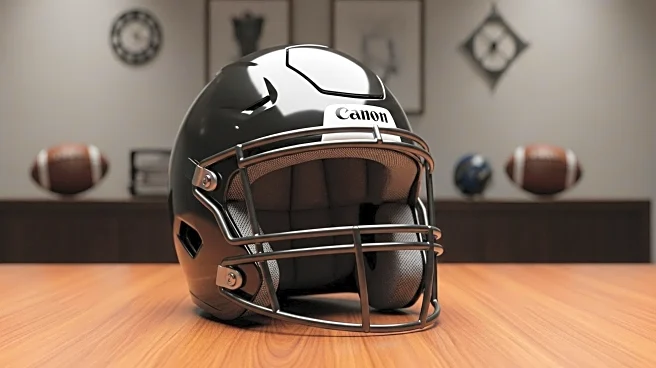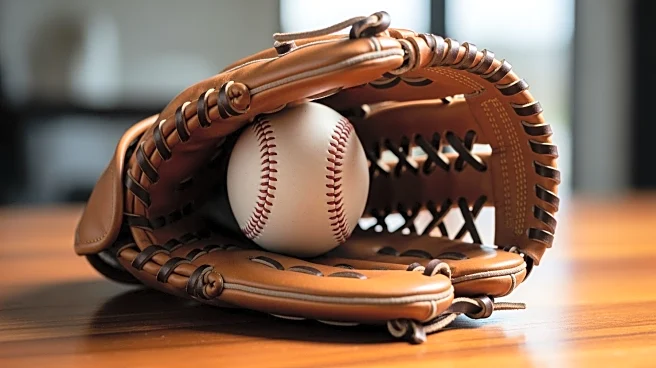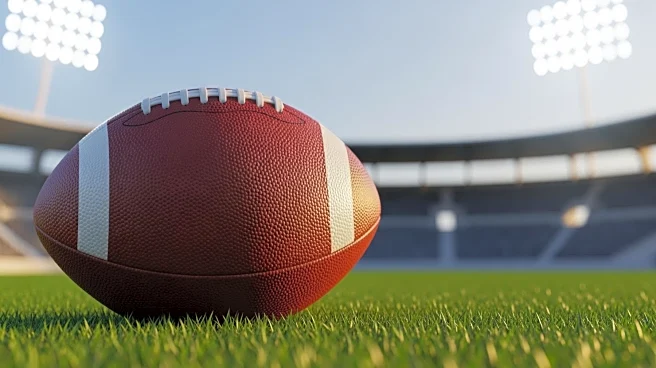What's Happening?
USA Today's Blake Toppmeyer has criticized Will Leitch, the author of an article in The Athletic that labeled Arch Manning as 'college football's first flop.' Toppmeyer questioned Leitch's understanding of college football, suggesting that Leitch might be more interested in baseball than football. The criticism comes amid discussions about Manning's performance with the Texas Longhorns, particularly in the context of the Red River Rivalry game against the Oklahoma Sooners. Toppmeyer predicted that despite John Mateer's return from injury, Texas would prevail in the game, challenging the notion that Manning is a flop. The article in The Athletic had positioned Manning as a major disappointment, despite his limited playtime and the high expectations surrounding him.
Why It's Important?
The critique from USA Today highlights the ongoing debate about Arch Manning's potential and performance in college football. Manning, who carries significant hype due to his family's legacy, is under intense scrutiny. The discussion reflects broader themes in sports journalism about the pressure on young athletes and the impact of media narratives. If Manning is indeed not a flop, the criticism of The Athletic's article could influence public perception and media coverage of college football prospects. This situation underscores the power of sports media in shaping athlete reputations and the potential consequences of premature judgments.
What's Next?
The upcoming games, including the Red River Rivalry, will be crucial for Arch Manning and the Texas Longhorns. Manning's performance in these games could either validate or refute the claims made in The Athletic's article. Stakeholders such as sports analysts, fans, and college football recruiters will be closely watching Manning's development. The outcome of these games may lead to further media discussions and analyses, potentially affecting Manning's future career prospects and the narrative surrounding his abilities.
Beyond the Headlines
The situation raises questions about the ethical responsibilities of sports journalists in reporting on young athletes. The pressure placed on Manning by media narratives could have long-term effects on his career and mental health. This case exemplifies the broader cultural dynamics in sports where athletes are often judged prematurely, impacting their public image and career trajectory. It also highlights the competitive nature of sports journalism, where sensationalism can sometimes overshadow factual reporting.









